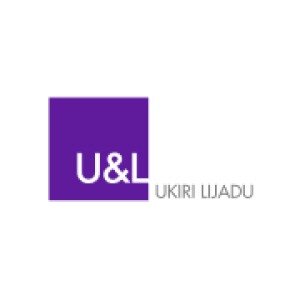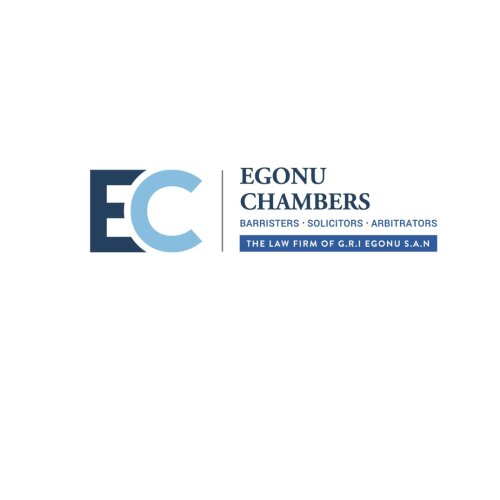Best Mining Law Lawyers in Maitama
Share your needs with us, get contacted by law firms.
Free. Takes 2 min.
List of the best lawyers in Maitama, Nigeria
About Mining Law in Maitama, Nigeria
Mining Law in Maitama, Nigeria, concerns the legal framework that governs the exploration, extraction, and processing of mineral resources within the region. Maitama, as a part of Abuja, the Federal Capital Territory, is subject to both federal legislation and specific local guidelines. Mining Law regulates who can conduct mining activities, how mineral rights are obtained, and the environmental and land use controls that operators must comply with. It is primarily administered under the Nigerian Minerals and Mining Act, 2007 and managed by the Ministry of Mines and Steel Development, alongside relevant local authorities.
Why You May Need a Lawyer
Mining activities are complex and often require compliance with various municipal, state, and Federal laws. You may need a Mining Law lawyer in Maitama for several reasons, including:
- Applying for or renewing mining licenses and permits
- Negotiating mining leases and land use agreements with landowners
- Ensuring environmental compliance and understanding regulatory requirements
- Handling disputes between mining companies, communities, and the government
- Advising on import and export controls for mined minerals
- Managing corporate, tax and investment structuring within the mining sector
- Representing clients in courts or administrative hearings regarding mining operations
- Guiding foreign investors through the Nigerian regulatory regime
Local Laws Overview
In Maitama, mining activities are primarily governed by the Nigerian Minerals and Mining Act, 2007 and accompanying regulations. Critical aspects of the law include:
- Licensing requirements: Every mining operator must obtain a license or lease from the Ministry of Mines and Steel Development
- Ownership: The Federal Government owns all minerals in Nigeria, including those in Maitama
- Environmental obligations: Miners are required to conduct Environmental Impact Assessments before commencing operations and maintain responsible environmental management
- Community relations: Miners must engage in community development and settle compensation for land use where applicable
- Health and safety: Adherence to health and safety guidelines is mandatory for all mining operations
- Local content: The law encourages the participation of Nigerian citizens and businesses in the mining sector
- Foreign investment: There are specific rules and incentives for foreign investors in mining
Understanding these provisions is crucial to conducting lawful and profitable mining operations in Maitama.
Frequently Asked Questions
What is the process for obtaining a mining license in Maitama?
To obtain a mining license, applicants must submit relevant documentation, pay required fees, and get approval from the Ministry of Mines and Steel Development. The process may also involve public consultations and environmental assessments.
Can foreign companies operate mines in Maitama?
Yes, foreign companies can operate provided they meet registration requirements, comply with local content rules, and follow Nigerian mining laws.
Who owns mineral resources in Maitama?
All mineral resources in Maitama and throughout Nigeria are owned by the Federal Government of Nigeria.
What are the environmental regulations for mining in Maitama?
Mining operators must conduct Environmental Impact Assessments, obtain environmental permits, and implement environmental protection measures as stipulated by law.
Are there special rules for artisanal mining?
Yes, there are specific provisions for small scale and artisanal miners, including easier licensing procedures and support schemes, but they must still adhere to safety and environmental guidelines.
How are disputes involving landowners and mining companies resolved?
Disputes can be resolved through negotiation, mediation, or litigation in Nigerian courts or specialized administrative tribunals, depending on the nature of the conflict.
Do mining companies have to provide compensation to local communities?
Yes, mining laws require companies to provide compensation for land use and may also mandate community development agreements.
What taxes or royalties apply to mining in Maitama?
Mining companies must pay royalties, income tax, and other relevant levies as prescribed by federal and local tax authorities.
Can licenses or mining rights be revoked?
Yes, licenses or rights can be revoked by the authorities if the holder fails to comply with the law, including environmental, health, or administrative requirements.
What are the penalties for illegal mining activities?
Penalties include fines, imprisonment, forfeiture of equipment, and loss of any mineral rights or licenses.
Additional Resources
Several bodies and resources can assist individuals seeking more information or legal support in Mining Law within Maitama:
- Ministry of Mines and Steel Development
- Nigerian Mining Cadastre Office
- Nigerian Geological Survey Agency
- Federal Capital Territory Administration
- Nigeria Bar Association - Maitama Branch
- Environmental and Advocacy NGOs active in Abuja
- Federal High Court (for mining disputes adjudication)
- A registered local law firm with mining law expertise
Next Steps
If you require legal assistance with Mining Law in Maitama, consider taking the following steps:
- Identify your specific legal concern, such as licensing, compliance, or dispute resolution
- Gather any relevant documents such as agreements, licenses, permits, or correspondence
- Consult with a qualified Mining Law lawyer who is familiar with Maitama and national regulations
- Contact the Ministry of Mines and Steel Development for procedural guidance or formal submissions
- If facing a dispute, consider alternative dispute resolution methods before resorting to litigation
Professional legal advice can help protect your investments, ensure compliance, and address any issues that arise in the course of mining activities in Maitama.
Lawzana helps you find the best lawyers and law firms in Maitama through a curated and pre-screened list of qualified legal professionals. Our platform offers rankings and detailed profiles of attorneys and law firms, allowing you to compare based on practice areas, including Mining Law, experience, and client feedback.
Each profile includes a description of the firm's areas of practice, client reviews, team members and partners, year of establishment, spoken languages, office locations, contact information, social media presence, and any published articles or resources. Most firms on our platform speak English and are experienced in both local and international legal matters.
Get a quote from top-rated law firms in Maitama, Nigeria — quickly, securely, and without unnecessary hassle.
Disclaimer:
The information provided on this page is for general informational purposes only and does not constitute legal advice. While we strive to ensure the accuracy and relevance of the content, legal information may change over time, and interpretations of the law can vary. You should always consult with a qualified legal professional for advice specific to your situation.
We disclaim all liability for actions taken or not taken based on the content of this page. If you believe any information is incorrect or outdated, please contact us, and we will review and update it where appropriate.









